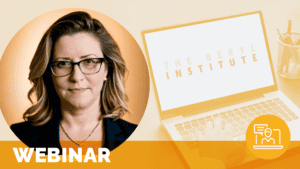Kindness is Good Medicine: Research in Increasing Kind Behaviors in Healthcare

By Jeannette Maré
Like many people who are drawn to human experience work in healthcare, I experienced a tragedy that changed everything about how I understand myself. Just before his third birthday, my son Ben died suddenly and unexpectedly of a croup virus. I am not being hyperbolic when I say that I didn’t think I could survive his death. The pain felt cellular, deep inside, and all throughout me. I quickly realized that I wouldn’t survive losing Ben without robust support and, thankfully, that support materialized in the form of kindness starting with the team who cared for him (and for us) in the PICU.
Dozens of staff behaviors communicated to me and my family that we were being held, and when the worst happened, their kindness intensified. When we left the hospital without our baby, we were wrecked and devastated and, at the same time, loved and supported. To this day, it amazes me that we experienced the worst possible outcome but had a positive experience with the people who cared for us. I often wonder what my life would be like today if I hadn’t had that foundation of kindness under me. And I think about those families who don’t feel cared for when they leave the hospital, and I grieve for how that adds to the distress of their experience. Our hospital experience becomes a permanent part of our story.
My experience changed how I think about kindness. I push back on the idea that kindness is “soft” or that working on increasing kindness can be put off until the real problems are solved. I learned from my experience and from subsequent years of study that kindness put first creates the conditions for people to come together to do their best work. Healthcare quality and safety depend on strong relationships among the team and with patients and families, and good relationships depend on kind interactions.
I count myself lucky to be a social and behavioral scientist working in partnership with the College of Medicine-Tucson and local healthcare organizations to understand how to increase kind behavior. We’re calling our collective commitment “Kindness is Good Medicine,” and the formative research we’re doing together is well underway. Before we can try to increase kind behavior, we must know specifically what behaviors we’re trying to increase. Using group concept mapping and the reasoned action approach, we’re identifying kind behaviors and behavioral categories and learning that team members conceptualize kindness in discrete types. For example, greeting someone in the hallway is a kind behavior distinct from consoling a family who has just experienced the death of a loved one. Our goal is to increase all types of kind behaviors, and the understanding that different kinds of kindness may require different skill sets and conditions is a vital first step.
We know that patient experience is the sum of all interactions during a patient’s visit and the employee experience is the sum of interactions during the workday. To have a positive experience, we need to have a lot of kind interactions every day. Based on our research, those interactions don’t take much time, but cumulatively they communicate that a person is seen, valued, and cared for. Kindness is Good Medicine challenges us to do more kindness every day. We’re now using the foundational research to inform our plans for increasing kindness moving ahead, and we look forward to sharing what we learn.
About the author:
Jeannette Maré, PhD, is the Director of the Science of Kindness Community Collective at the University of Arizona. Her path to becoming a community-engaged kindness scholar was a long and winding one. Jeannette’s world changed drastically after the sudden death of her son in 2002. In the incredible grief of losing Ben, learning and sharing about the lifesaving, world-changing power of kindness became her sole focus. With her heart broken open, she founded Ben’s Bells, a nonprofit that inspires and teaches the intentional practice of kindness. Now, as a research professor, Jeannette is working with university faculty, staff, and students, and with community members and organizations, to develop a theoretically based and empirically informed model that will guide a community-wide effort to create a culture of kindness learning and practice.
Related content
-
 Patient Family & Community Engagement
Patient Family & Community EngagementA Qualitative Study Patients Expectations of Private Hospitals
Objectives: This study was conducted to explore patients’ expectations and perceptions of private healthcare facilities, understand the key factors influencing their choice of such facilities, also identify elements that enhance patient satisfaction and loyalty, enabling the development of actionable recommendations to improve patient-centered care in private healthcare settings. Method: A qualitative study using thematic analysis
Learn more -
 Quality & Clinical Excellence
Quality & Clinical ExcellenceEffectiveness of Incident Reporting Tools in Ensuring Patient Safety: A Systematic-Narrative Hybrid Review
Background: Ensuring Patient Safety in healthcare is essential and requires efficient methods to reduce risks and improve the quality of care. Although incident reporting tools are commonly used to identify possible and actual care failures, their efficacy differs among various environments. The aim is to evaluate the effectiveness of incident reporting tools in enhancing patient safety. Methods: This
Learn more -
 Patient Family & Community Engagement | Staff & Provider Engagement
Patient Family & Community Engagement | Staff & Provider EngagementBuilding Cognitive-Based Compassion into Service Recovery Training
2pm ET / 1pm CT / 12pm MT / 11am PT – Traditional service recovery training often focuses on key principles and de-escalation techniques, leaving learners with theoretical knowledge but lacking practical implementation skills. In response to rising workplace violence and increasing complaints, we redesigned our service recovery training to incorporate cognitive-based compassion training. This
Learn more
